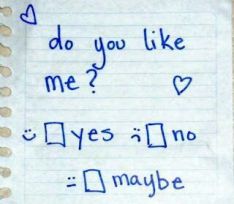Recently, a friend of mine asked if I had any tips as she thought about her next role. She knew that I had been through a similar situation about a year ago and wanted to know what wisdom I had learned from the experience.
I also laugh a little to myself when I get these requests. I think it’s fun that people think I know what I’m doing as a job-seeker. As a recruiter, not a problem – I can give advice and suggestions all day long about how to recruit, as well as share what recruiters and hiring managers are thinking. It’s different when it’s personal. I often describe my career as “Forrest Gump-ing my way through life” because I wasn’t always the most thoughtful in my approach. I would work somewhere for awhile, decide it was time to leave, then find something else without a lot of planning. It typically worked out, but not always. And while I learned something from every job, I feel like I could have avoided some of the pain along the way if I had been smarter about it. 
Thankfully, I was a LOT more thoughtful about my last move. As a result, I’m in a job I love doing incredibly interesting work with incredibly smart people. Finally.
So, to help you NOT be me, here are some of the tips I shared with my friend:
- Don’t search scared: If you still have a job while you’re searching, this is a little easier. If you don’t have a job, it can be hard to be patient and not panic about money. Hopefully you have a nice buffer and can feel okay taking the right amount of time to find what you want. This isn’t always possible, so if you need to take a contract position while you look for your permanent home, that’s okay.
- Know (generally) what you want: Just blindly looking for something that looks interesting is exhausting and makes it harder for people to help you network. There are some good free tools out there to help you narrow your focus. Or splurge for a session with a coach or super smart friend. Whatever you do, narrowing down your want list is necessary.
- Find like-minded people: I’m not talking culture fit. Find people who will appreciate you for YOU. I’m at the point in my career where I will not suffer fools for immediate coworkers, so I consider long and hard who I will be interacting with, whether I’ll learn anything from them, and whether they will get my sense of humor (and that list is shorter than you think).
- Don’t be afraid to ask for help: As shared earlier, I suck at finding jobs for myself, but I love helping other people find jobs (I’m so weird like that). Chances are, you have an AMAZING network of people who love you and want to help you find your dream job. Use it.
- Treat Yo’Self!: Yes, you’ll want to be smart about money until you’ve got your next gig figured out, but don’t begrudge yourself a pedicure. Or a trip, if it’s booked. Or a hair appointment. Or that damn cup of fancy coffee. You still need to love you.
So there you have it. Hopefully this helps you as you contemplate that next job search. It’s not an exact science. Everyone’s search is a little different, so grant yourself a little grace along the way.
If you have any advice to share, please do! And good luck to those who are looking for their next job. We’ve got your back.

